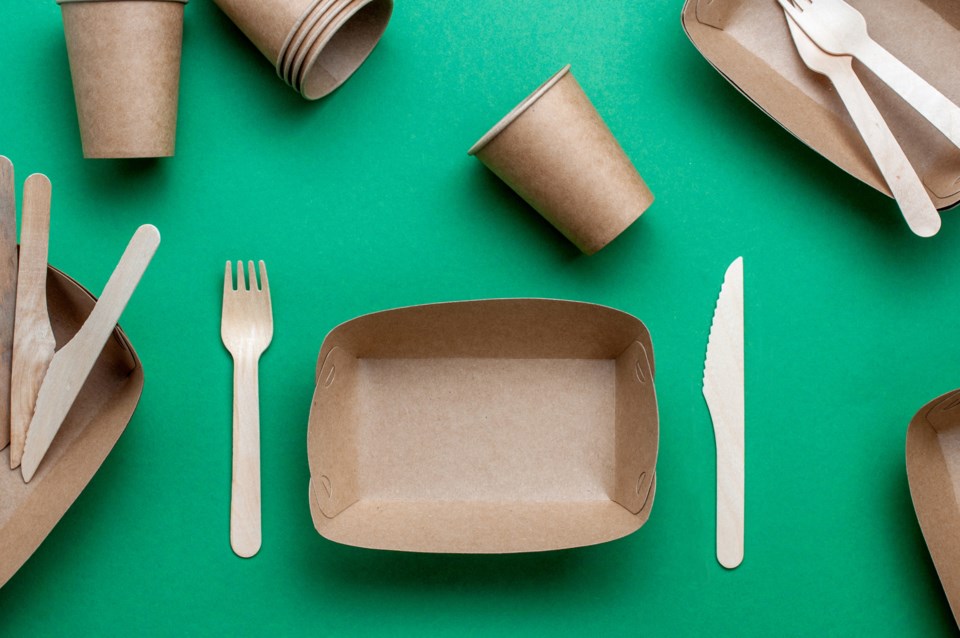A local business owner believes the City of Vancouver’s recently mandated ban on single-use plastics and fees for paper ones was at best not thought through and at worst an effort to posture a position of sustainability.
Zach Berman is the co-founder of The Juice Truck, Vancouver’s first and original cold-pressed juice company. Berman’s business has been using compostable single-use items long before the city’s single-use bylaws came into effect on Jan. 1. Those bylaws make it so various single-use items used to serve food and drink are either banned or carry with them an extra $0.25 charge.
There are exceptions to the bylaw but compostable single-use items are not among them which has quickly become a source of great frustration for Berman.
“Businesses want to genuinely be greener, and customers are holding businesses accountable to be greener," Berman said in a recent interview with Vancouver Is Awesome. "The issue is we've got all these businesses and these customers that are investing into greener solutions but the city refuses to invest in green solutions and how it manages waste."
'Extended producer responsibility'
The City of Vancouver supports what is called “extended producer responsibility” (EPR) for compostable plastics and packaging. This EPR stance is a product of how British Columbia’s Recycling Regulations require producers of packaging, including compostable plastics, to collect and manage their products the city wrote in a statement to V.I.A.
Aside from not being accepted by B.C.’s Recycling Regulations, businesses using compostable cups won’t be granted an exemption for a number of reasons which the city laid out. These include not being accepted by the city’s own recycling program, contaminating existing composting and recycling streams, and not breaking down if littered in the natural environment. As a result, compostable containers, cups, and cutlery are likely to be put in the landfill or in the incinerator.
'Vancouver's like, very, very behind'
However, Berman says it doesn’t have to be this way.
"If you look at other major cities that are promoting a green agenda, they all have this technology so Vancouver's like, very, very behind," he said. Seattle for example requires all food service businesses to use recyclable or compostable packaging and works with a composting company to dispose of the items.
The lack of support for compostable items isn’t the only gripe Berman has with the bylaw though. That previously mentioned $0.25 charge goes to businesses so they can, as the city suggests, invest in reusable alternatives, cover the cost of complying with the bylaw or donate reusable bags to charitable food services.
'Set us up to fail'
Under the bylaw, the fee is enforceable with various escalating fines, where the money ultimately goes is not. With that said, Berman says the fee appears to customers as an opportunity for a “cheeky extra profit.” Additionally, Berman believes the money would do better in the city’s coffers.
"I think the city kind of set us up to fail because the money is going into the businesses' pockets versus being used to implement greener solutions,” Berman said. "There are questions about what we intend to do with the 25 cents when we haven't really had a strategy of applying it.”
As stated by the city, the bylaws were written with the goal of reducing single-use plastics and providing incentives to use reusable cups. Those incentives include the city’s cup sharing program and, in light of the coronavirus (COVID-19) pandemic, a “contactless coffee procedure” approved by the BCCDC and Vancouver Coastal Health.
'In theory it makes sense'
Berman says these exact procedures are putting his employees and customers at risk. The problem comes when real-world practicality is applied.
“In theory it makes sense but in practice, you just have customers passing cups to you,” Berman said. “Pre COVID it's a great idea. We endorsed it, pushed it, and promoted it but during COVID we can’t ensure that these cups are clean so we're taking a risk.”
All his concerns together, Berman believes the city is taking part in greenwashing, a kind of marketing strategy that aims to mislead consumers regarding their environmental practices.
"It just feels like a plan that wasn't fully thought out before it was rolled out."




